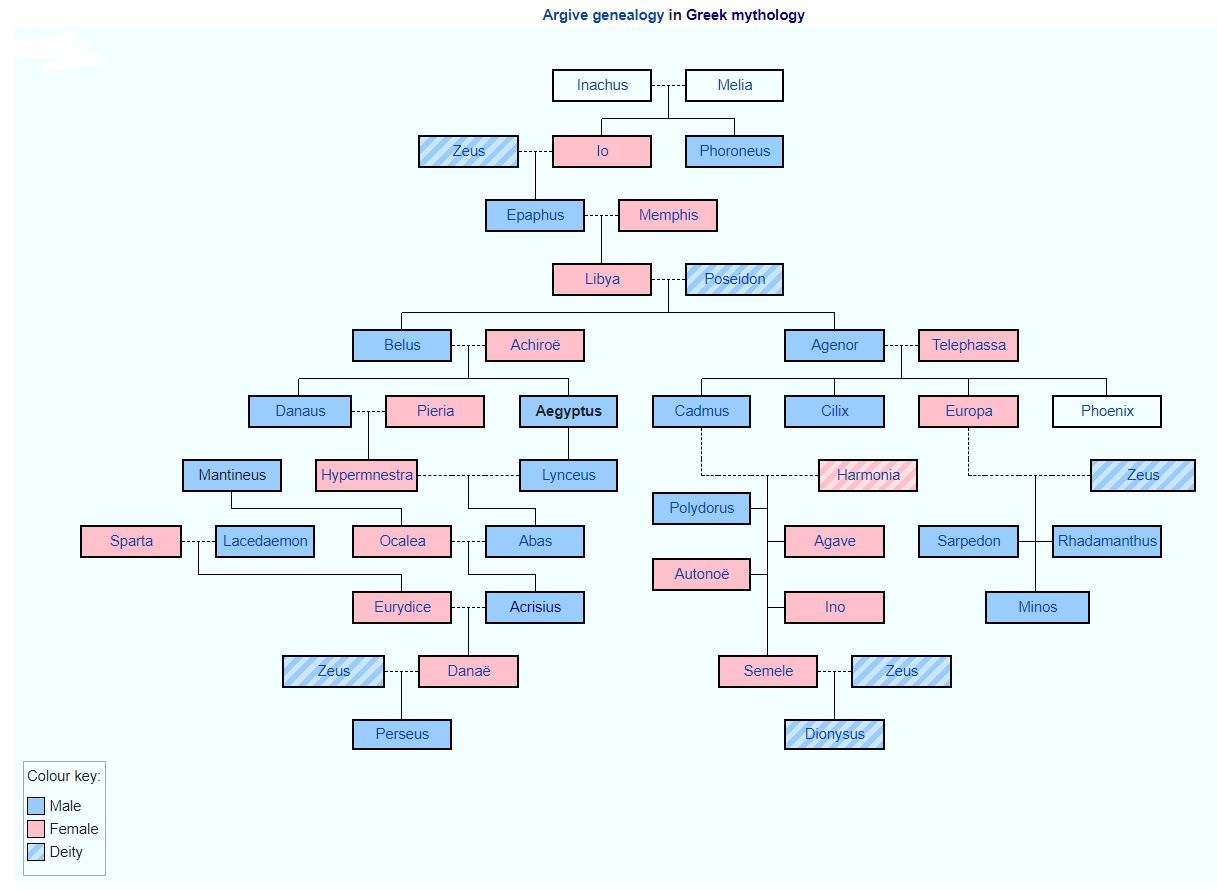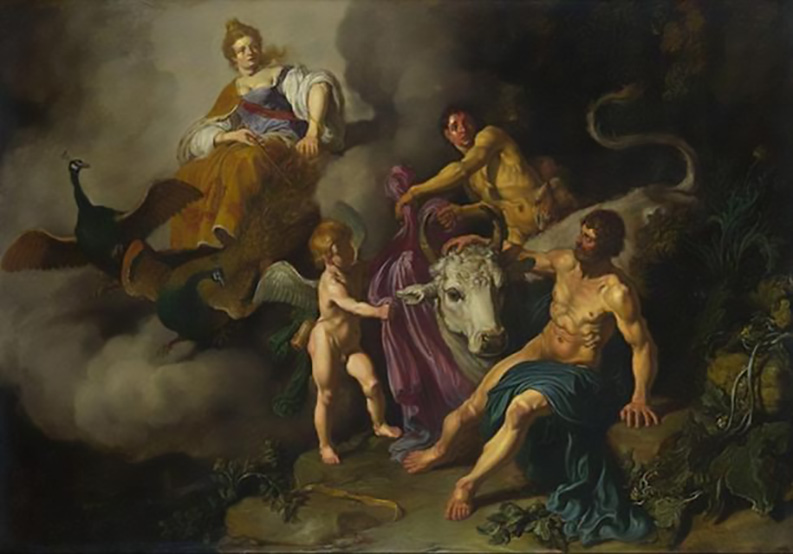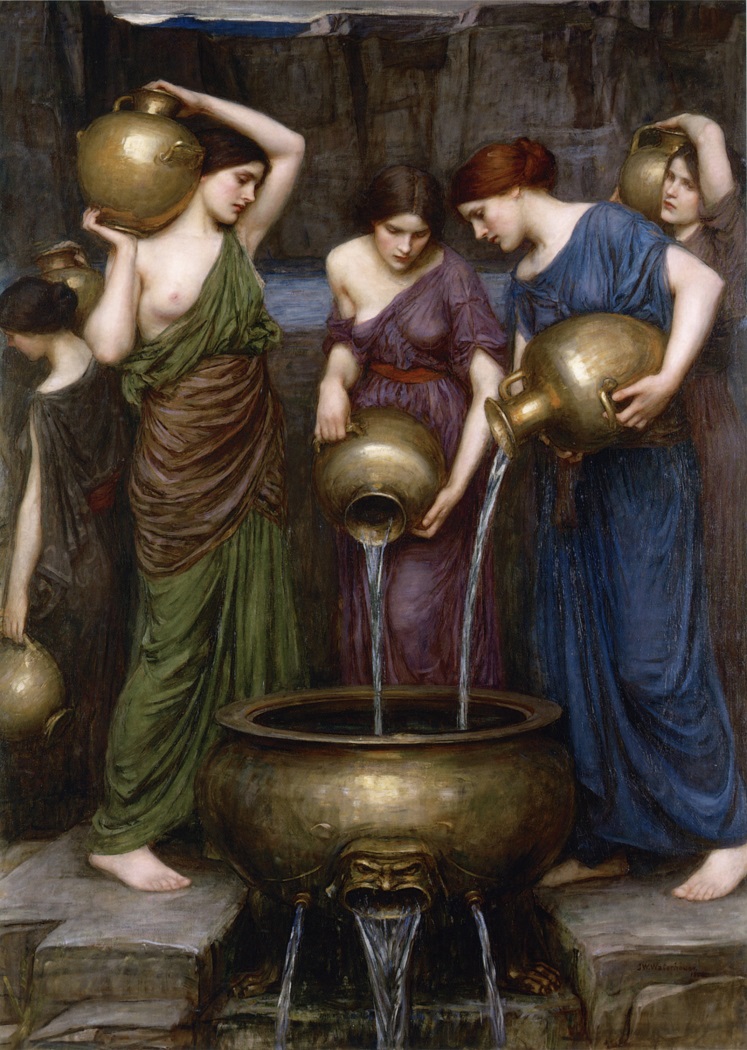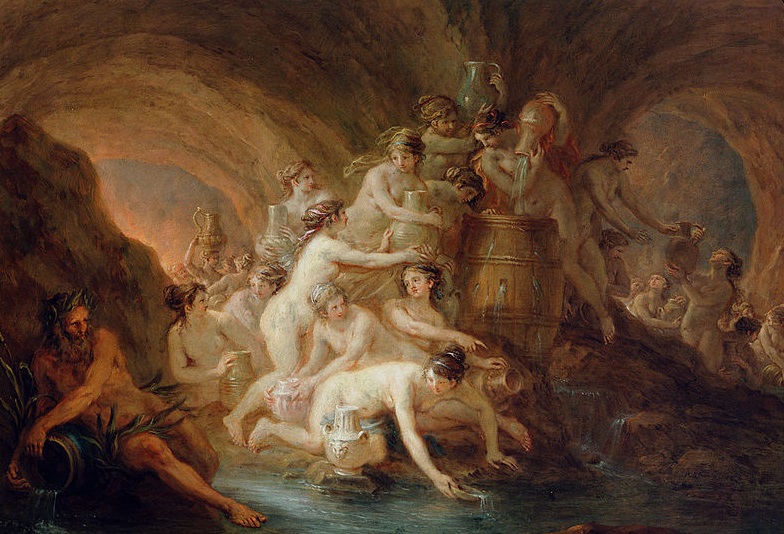Aegyptus
Aegyptus (Ancient Greek: Αἴγυπτος) was a legendary king of Greek mythology, though not a king of Ancient Greece, for Aegyptus was originally the King of Arabia, before expanding his territory into North Africa.
AEGYPTUS SON OF BELUS
Aegyptus was a descendant of Io, the naiad beloved by Zeus, who having been turned into a heifer, had wandered the earth before she arrived in North Africa.
Several generations later Io's great-grandson Belus ruled North Africa, and having found a partner in the form of Achiroe, the naiad daughter of Nilus, Belus would become father to two twin sons, Danaus and Aegyptus.
Belus would divide his kingdom between his two sons, and Danaus became king of the land known as Libya, whilst Aegyptus became king of Arabia.

50 SONS FOR AEGYPTUS
Danaus his famous for being the father of 50 daughters, and similarly Aegyptus would become a father of 50, this time 50 sons. Some sources claim that these sons were born to a single woman, Eurryroe, the Naiad daughter of Nilus, though it was more common to attribute the birth of Aegyptus's sons to multiple women.
These being an Arabian princess called Argyphia, a Naiad named Caliadne, a woman called Tyria, one called Gorgo, another called Hephaestine, and also an unnamed Phoenician woman.
AEGYPTUS AND THE LAND OF EGYPT
Aegyptus was a king who was not content with his lot, and he expanded his kingdom westwards, conquering the land of the Melampodes, and then renaming this land Egypt after himself.
Aegyptus' brother Danaus then feared for his own kingdom, for would Aegyptus stop travelling west? Believing that he would not, Danaus constructed a ship on which he, and his daughters, departed Libya, on a journey that would ultimately see them end up in Argos.
Aegyptus wanted his sons to marry the daughters of Danaus, and so Aegyptus dispatched them to Greece, whilst Aegyptus presumably remained in Libya, for he was now the king of the whole of North Africa and Arabia.

THE DEATH OF AEGYPTUS AND HIS SONS
The sons of Aegyptus caught up with Danaus and Danaids in Argos, and there they demanded that they be wed to their cousins. Danaus had no option but to agree, but it would not prove to be a happy wedding day and night for the sons of Aegyptus, for Danaus told his daughters that they must kill their husbands.
All the Danaids did as their father ordered, all that was aside from Hypermnestra who spared her husband Lyncaus.
What happened to Aegyptus is not made clear, but a myth about the death of Aegyptus can be taken from Pausanias' Description of Greece, for he relates that the tomb of Aegyptus was to be found in one of sanctuaries of Serapis in Aroe (Patrae). It was said that Aegyptus had followed after his sons, but when he found that they had been murdered, he fled to Patrae, where he perhaps died of grief.
ALTERNATIVE VERSION
When Aegyptus and his sons arrived to take the Danaïdes, Danaus relinquished them, to spare the Argives the pain of a battle; however, he instructed his daughters to kill their husbands on their wedding night. Forty-nine followed through, but one, Hypermnestra ("greatly wooed"), refused, because her husband, Lynceus the "lynx-man", honored her wish to remain a virgin.
Danaus was angry with his disobedient daughter and threw her to the Argive courts. Aphrodite intervened and saved her. Lynceus and Hypermnestra founded the lineage of Argive kings, a Danaid Dynasty.
In some versions, Lynceus later slew Danaus as revenge for the death of his brothers, and the Danaïdes were punished in the underworld by being forced to carry water through a jug with holes, or a sieve, so that the water always leaked out.
The story of Danaus and his daughters, and the reason for their flight from marriage, provided the theme of Aeschylus' The Suppliants.

Sources
Apollodorus, Apollodorus, The Library, with an English Translation by Sir James George Frazer, F.B.A., F.R.S. in 2 Volumes. Cambridge, Massachusetts, Harvard University Press; London, William Heinemann Ltd. 1921.
Fowler, Robert. L. (2000), Early Greek Mythography: Volume 1: Text and Introduction, Oxford University Press, 2000.
Gantz, Timothy, Early Greek Myth: A Guide to Literary and Artistic Sources, Johns Hopkins University Press, 1996, Two volumes.
Stewart, M. People, Places & Things: Aegyptus (1), Greek Mythology: From the Iliad to the Fall of the Last Tyrant.
Vertemont, Jean , Dictionnaire des mythologies indo-europeenes, 1997.
"Wikipedia"
"Greek Legends and Myths"













